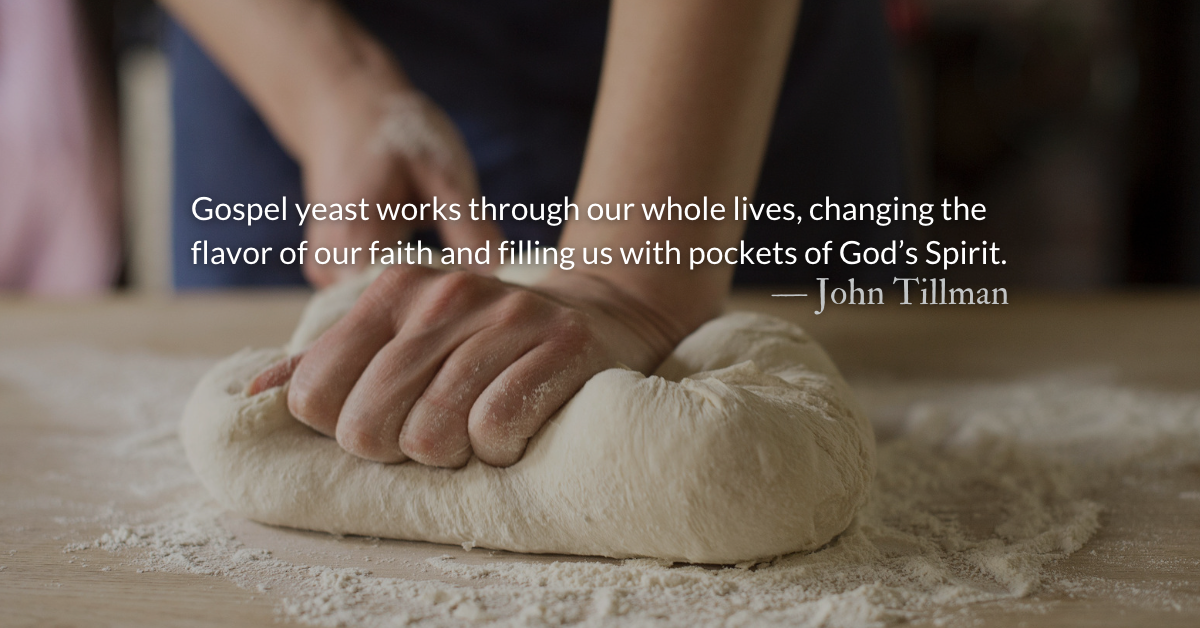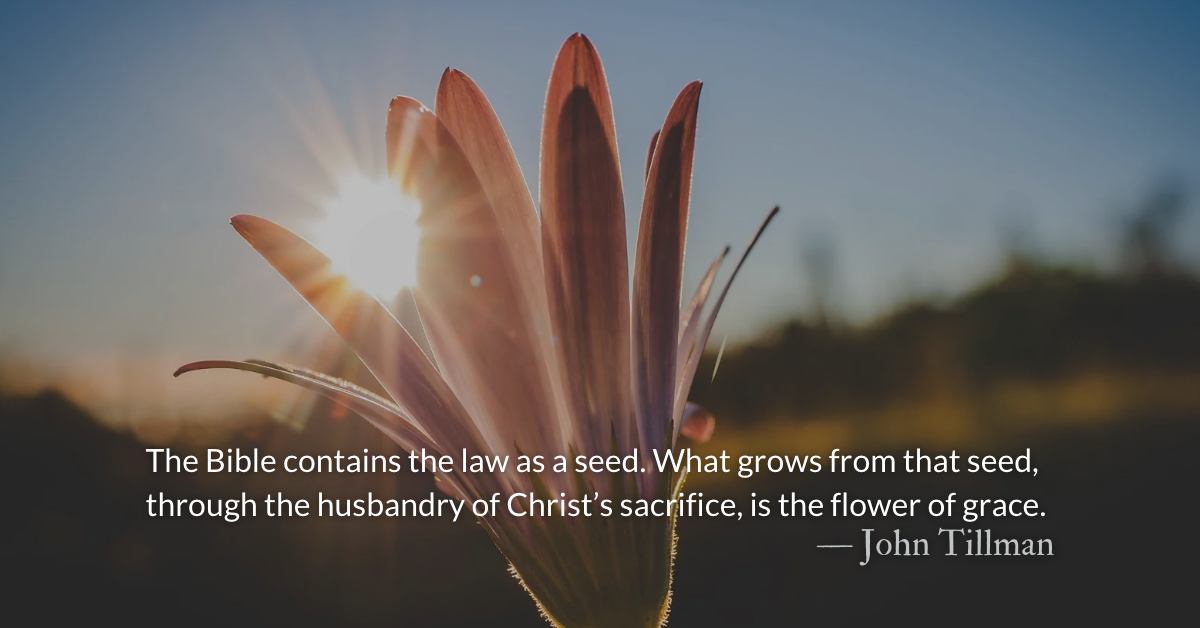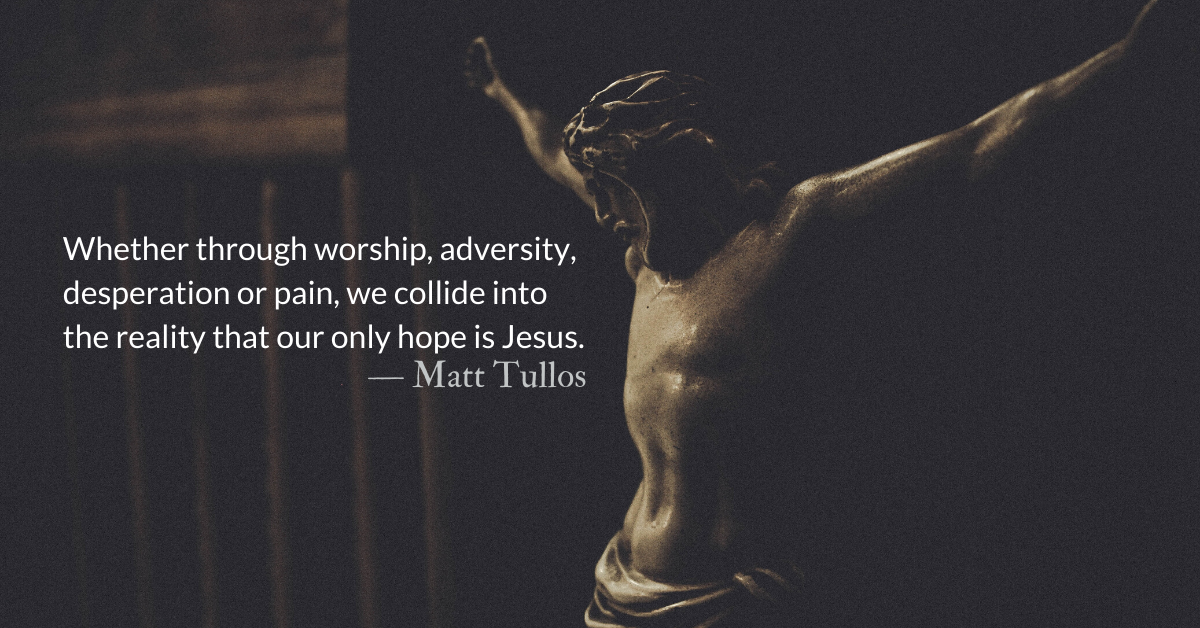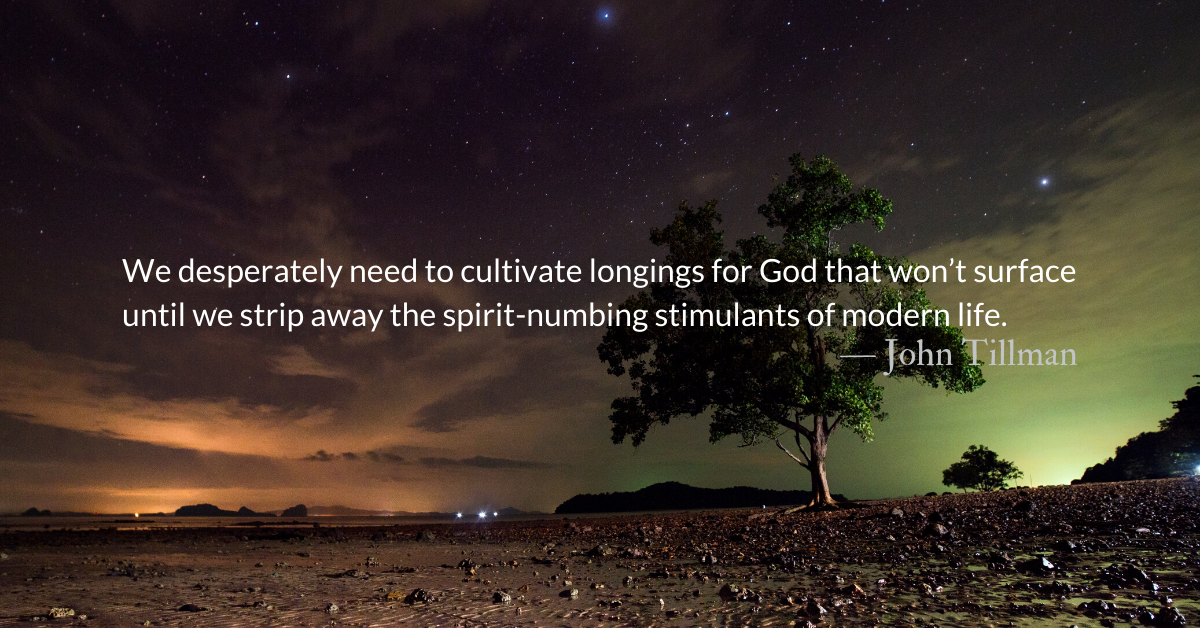Scripture Focus: Galatians 5.6-9
6 For in Christ Jesus neither circumcision nor uncircumcision has any value. The only thing that counts is faith expressing itself through love.
7 You were running a good race. Who cut in on you to keep you from obeying the truth? 8 That kind of persuasion does not come from the one who calls you. 9 “A little yeast works through the whole batch of dough.”
Reflection: Bad Yeast and Good Yeast
By John Tillman
Paul repeats this line, “A little yeast works through the whole batch of dough” in 1 Corinthians. (1 Corinthians 5.6-7) In Corinthians, Paul was concerned that a case of sexual immorality would spread and damage the reputation of the church. Here, Paul was concerned that the Galatians were being misled to follow strict Jewish laws.
So which is it, Paul? Does “yeast” lead to breaking God’s law or to following God’s law? If one law from scripture is binding, Paul, why do you say people don’t have to follow them all?
In the majority of scripture, yeast is treated like a corrupting agent. Nearly every mention is about keeping yeast out of spaces, places, and food that is holy. This goes back to the establishment of Passover. Making bread without yeast in that meal symbolized the haste with which the Israelites were to leave Egypt. (Exodus 12.34-39) All the ceremonial bread used in worshiping the Lord in the Tabernacle was to be made without yeast because it was looking back to that moment.
Yeast was removed from Jewish communities during Passover because just a little could make an entire batch of bread unusable. Even today, on the night before Passover, Jewish families will search through the house for crumbs of leavened bread, hidden by parents for children to find. These will be thrown out or burned.
Paul, and Jesus, were concerned about the yeast of false teaching and sin. They wanted it exposed and thrown out. Jesus warned about this in Mark, Matthew, and Luke. (Mark 8:14-21; Matthew 16.5-12; Luke 12.1-2) In Luke, Jesus specified yeast as the sin of hypocrisy and stressed that hidden things would be exposed. However, Jesus also compared the Kingdom of God to yeast spreading through a large batch of dough. (Luke 13.18-21)
So, there is good yeast which is the gospel the Galatians risked losing. And there is bad yeast, including pride, self-righteousness, hypocrisy, sexual immorality, and other sins.
We need to seek out and throw out bad yeast. This yeast puffs us up with pride which could lead to self-righteous-rule-enforcing or self-righteous-rule-breaking. Sinful yeast makes us unclean and infects everything we touch.
We need gospel yeast. This yeast works through our whole lives, changing the flavor of our faith and filling us with pockets of God’s Spirit. Serve the world with gospel yeast. This yeast is the yeast that counts: “faith expressing itself in love.” (Galatians 5.6)
Share the gospel. It is good yeast.
Divine Hours Prayer: The Call to Prayer
Let my mouth be full of your praise and your glory all the day long. — Psalm 71.8
– From The Divine Hours: Prayers for Springtime by Phyllis Tickle.
Today’s Readings
Numbers 16 (Listen 6:59)
Galatians 5 (Listen 3:22)
Read more about The Law that leads to Grace
Thank you, God, for grace through faith that cannot be downgraded and a Law designed to lead us to grace.
Read more about Of Grace and Thorns
Paul’s thorn in the flesh is one of the great unknowns of scripture.






